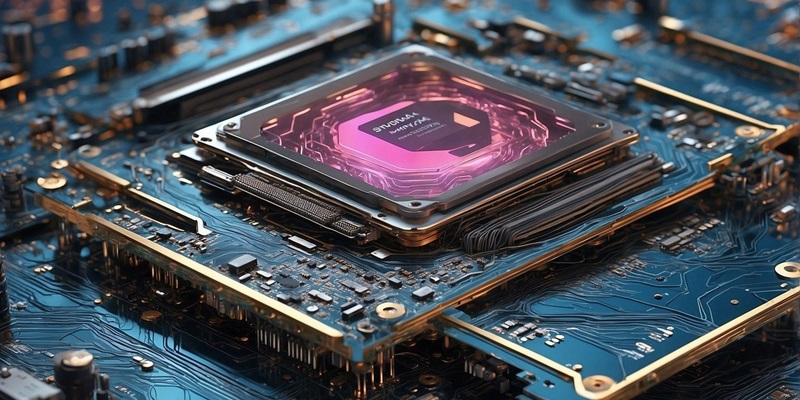The upcoming release of Qualcomm’s Snapdragon 8 Gen 4 has garnered much attention, particularly surrounding its anticipated technological advancements. Set to be unveiled at the Snapdragon Summit from October 21 to 23 in Maui, Hawaii, this next-generation flagship chipset will power top-tier devices like the Samsung Galaxy S25 Ultra. Despite the initial excitement, a leaker on X, @negativeonehero, suggests that internal testing data reveals only a modest CPU performance improvement. Specifically, the performance enhancement is expected to be within a single-digit percentage compared to its predecessor, the Snapdragon 8 Gen 3.
Modest CPU Gains: A Disappointing Reality for Enthusiasts
For those who prioritize blazing-fast CPU capabilities in their mobile devices, the Snapdragon 8 Gen 4 might not live up to the hype. The leaker, @negativeonehero, has suggested through internal testing data that the CPU performance gains are anticipated to be in the range of a single-digit percentage compared to the Snapdragon 8 Gen 3. This revelation might be disheartening for tech enthusiasts who were hoping for a more robust leap in processing power to handle demanding applications and multitasking scenarios seamlessly.
Despite the minor gains, Qualcomm’s consistent reputation for refining and optimizing its architectures suggests overall system stability and incremental efficiency improvements. However, these subtle advancements might not be compelling enough to drive users to upgrade from the Snapdragon 8 Gen 3 to the new generation if their primary focus lies within CPU performance. As the tech community anticipates greater strides in CPU capabilities, some may find themselves reconsidering their upgrade plans and holding out for the Snapdragon 8 Gen 5, which promises to introduce custom Pegasus CPU cores by 2026.
In a market segment where CPU performance often stands as a critical benchmark for innovation, the incremental upgrade in the Snapdragon 8 Gen 4 raises questions around Qualcomm’s strategic direction. Historically, flagship chipsets have been vehicles of substantial performance enhancements, so a single-digit percentage increase could signal a temporary pivot towards other technological facets. While this may realign expectations, it also opens a dialogue on the balance Qualcomm is trying to strike between CPU, GPU, and overall system efficiency—a balance that may be more skewed towards graphical performance in the Snapdragon 8 Gen 4.
Substantial GPU Improvements: A New Graphic Frontier
In contrast to the lukewarm CPU performance upgrades, the Snapdragon 8 Gen 4’s GPU capabilities appear to be where Qualcomm has invested its technological prowess. The anticipated GPU performance enhancements are substantial and could rival the levels attained by MediaTek’s Dimensity 9300, though with significantly lower power consumption. These advancements are particularly exciting for gamers and graphic-intensive application users, who are likely to experience smoother gameplay, faster rendering times, and ultimately a more immersive user experience.
Qualcomm’s shift towards enhanced GPU capabilities could be a strategic move to capture a burgeoning market segment increasingly focused on mobile gaming and high-resolution media consumption. The ability to deliver top-tier graphical performance while optimizing power usage not only prolongs battery life but also ensures a more sustainable and heat-efficient device operation. This combination is crucial for gamers, who demand extended playtime without the device overheating or draining its battery rapidly.
Moreover, these GPU enhancements align with broader industry trends towards augmented reality (AR) and virtual reality (VR) applications, which require robust graphical processing to deliver seamless and lifelike experiences. The Snapdragon 8 Gen 4’s GPU improvements could catalyze the development of next-generation AR and VR applications, solidifying Qualcomm’s position in a future-forward tech ecosystem. For users invested in this graphical revolution, the Snapdragon 8 Gen 4 may provide a compelling reason to upgrade, even if the CPU improvements do leave something to be desired.
Looking Ahead: Balancing Performance and Efficiency
Qualcomm’s highly anticipated Snapdragon 8 Gen 4 chipset is set to make its debut at the Snapdragon Summit from October 21 to 23 in Maui, Hawaii. This next-gen flagship chip is speculated to power elite devices such as the Samsung Galaxy S25 Ultra. Analysts and tech enthusiasts are abuzz with excitement about the expected technological innovations that this chipset will bring. However, a leaker on X, known as @negativeonehero, has tempered some of this excitement. According to internal testing data, the Snapdragon 8 Gen 4 might offer only a modest improvement in CPU performance. Specifically, the performance gain is projected to be within a single-digit percentage when compared to its predecessor, the Snapdragon 8 Gen 3. This revelation has slightly dampened the high expectations around the chipset, as many were hoping for more significant advancements. Nonetheless, the upcoming unveiling is still keenly awaited, with the Snapdragon 8 Gen 4 expected to push the boundaries of mobile technology in various other ways, despite the modest CPU performance increase.

